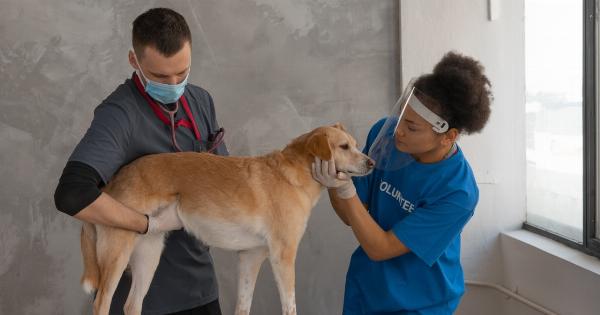As a pet owner, you may have experienced the challenge of seeing your furry friend going through a therapeutic crisis. This situation can be overwhelming and worrying, but there are ways to cope with it.
What is a therapeutic crisis?
A therapeutic crisis refers to a situation where a pet’s physical or emotional health worsens despite ongoing treatment.
This may happen due to various reasons such as an adverse reaction to medication, an interaction between different medications, a disease progression, a severe injury, or a traumatic event.
The importance of seeking professional help
If you suspect that your pet is going through a therapeutic crisis, it is crucial to seek immediate professional help. Contact your veterinarian or a veterinary emergency service provider to get advice on what steps to take next.
It is also essential to have a close relationship with your veterinarian, which can help them understand your pet’s history and specific needs.
With this knowledge, your vet can provide better care and make informed decisions on your pet’s behalf.
Understanding your pet’s condition
To cope with a therapeutic crisis, it’s vital to understand your pet’s condition. Ask your veterinarian to explain your pet’s diagnosis and the treatment plan in detail.
You can also do some research online but, be careful, not all information is reliable.
Knowing what to expect can help you prepare for the worst-case scenario, and it may help you notice when something is wrong with your pet early enough to seek help before they enter a crisis.
Additionally, you can ask your vet about any warning signs to watch out for and how to provide supportive care at home.
Paying attention to your pet’s appearance and behavior
During a therapeutic crisis, your pet’s appearance and behavior may change drastically. Some signs to watch out for include excessive panting, lethargy, loss of appetite, difficulty breathing, vomiting, and diarrhea.
It’s essential to continuously monitor your pet’s physical appearance and behavior for any signs of improvement or worsening. You can also keep a pet health journal to record any changes and share it with your veterinarian.
This could help the vet understand your pet’s health pattern and react better when things go wrong.
Coping with the financial burden
Therapeutic crises can put a significant financial strain on pet owners, especially when intensive care and treatment are necessary.
Some treatments, such as chemotherapy, surgery, and extended hospital stays, can be costly and may require you to seek financial assistance or support from family and friends.
It’s essential to prepare yourself financially for any unforeseen circumstances, such as a therapeutic crisis. Consider pet insurance, which can help you offset some of the costs.
Also, if you foresee expensive treatments, it’s best to start saving ahead of time. Finally, there are some low-cost veterinary clinics that can cater to subsidized or free pet healthcare services.
Caring for yourself during the crisis
Pet owners tend to prioritize their pet’s wellbeing, putting their emotions and well-being aside. However, seeing your loved one suffer can be overwhelming and can take an emotional toll on your well-being.
Remember to take care of yourself and reach out to friends, family, and support groups for help. There is no shame in seeking help when you need it.
You can also engage in self-care practices such as exercise, meditation, and therapies that can help you stay centered.
Conclusion
A therapeutic crisis is a challenging situation that pet owners may face. However, with a good support system, communication between you and your veterinarian, preparation, and self-care practices, you can get through it.
With diligent care and love, your pet will also overcome their condition.






























